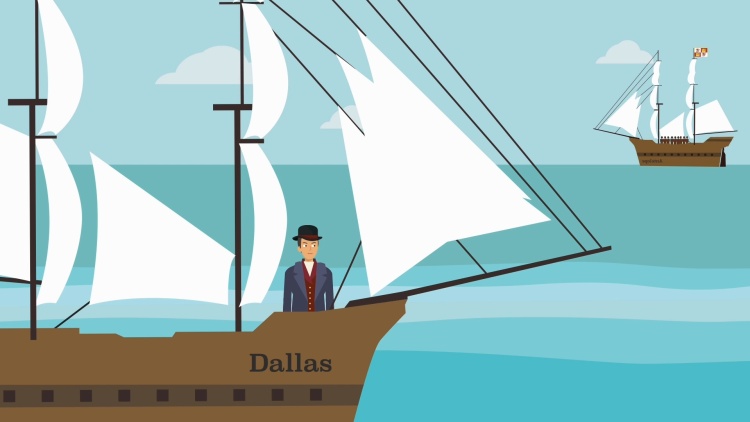The Antelope
United States Supreme Court
23 U.S. 66 (1825)
- Written by Jamie Milne, JD
Facts
In 1819, a ship clandestinely left Baltimore with an American crew. The crew changed the flag, renamed the ship the Arraganta, and attacked slave ships along the coast of Africa. The Arraganta captured several ships, one American, multiple Portuguese, and one Spanish, called the Antelope. The Arraganta took on hundreds of enslaved Africans. The Arraganta and the Antelope sailed to Brazil, where the Arraganta wrecked. The surviving crew and Africans moved to the Antelope, which then sailed toward Florida. Suspecting that the Antelope was smuggling slaves into the United States, an American ship captured the Antelope, and it was ordered to Georgia for adjudication. At that point, the Antelope was carrying about 280 Africans. Spanish and Portuguese diplomats (plaintiffs) claimed their citizens owned the captured Africans and demanded their return. Spain provided proof of ownership, but Portugal did not. The United States (defendant) argued that the Africans had been brought from foreign locales against American law and were entitled to their freedom. Congress had outlawed importing new slaves, although owning slaves remained legal. The trial court held that the Africans from the captured American ship were freed but those captured from Portuguese ships or the Antelope were to be divided proportionally between Portugal and Spain. The United States appealed to the Supreme Court. A third of the Africans died before the Court’s judgment in 1825. [Editor’s Note: In 1825, Portugal but not Spain had abolished trading African slaves.]
Rule of Law
Issue
Holding and Reasoning (Marshall, C.J.)
What to do next…
Here's why 907,000 law students have relied on our case briefs:
- Written by law professors and practitioners, not other law students. 47,100 briefs, keyed to 996 casebooks. Top-notch customer support.
- The right amount of information, includes the facts, issues, rule of law, holding and reasoning, and any concurrences and dissents.
- Access in your classes, works on your mobile and tablet. Massive library of related video lessons and high quality multiple-choice questions.
- Easy to use, uniform format for every case brief. Written in plain English, not in legalese. Our briefs summarize and simplify; they don’t just repeat the court’s language.





